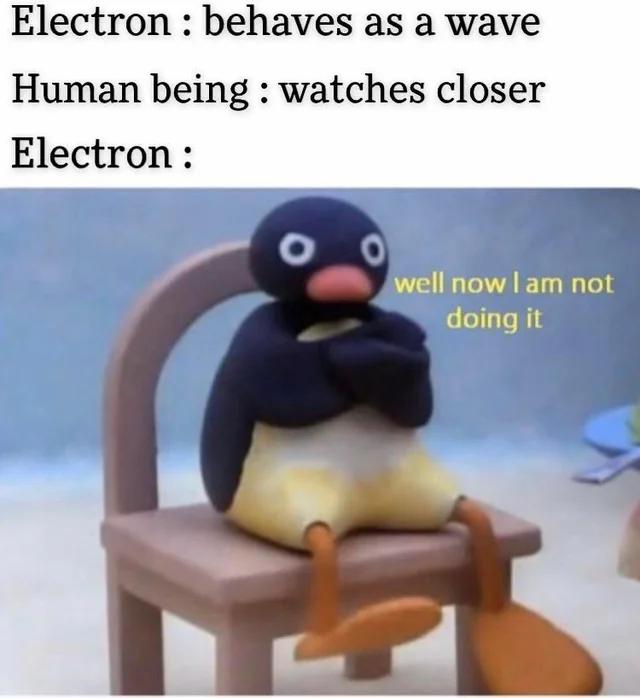this post was submitted on 19 Mar 2024
1370 points (98.9% liked)
Science Memes
12060 readers
1323 users here now
Welcome to c/science_memes @ Mander.xyz!
A place for majestic STEMLORD peacocking, as well as memes about the realities of working in a lab.

Rules
- Don't throw mud. Behave like an intellectual and remember the human.
- Keep it rooted (on topic).
- No spam.
- Infographics welcome, get schooled.
This is a science community. We use the Dawkins definition of meme.
Research Committee
Other Mander Communities
Science and Research
Biology and Life Sciences
- [email protected]
- [email protected]
- [email protected]
- [email protected]
- [email protected]
- [email protected]
- [email protected]
- [email protected]
- [email protected]
- [email protected]
- [email protected]
- [email protected]
- [email protected]
- [email protected]
- [email protected]
- [email protected]
- [email protected]
- [email protected]
- [email protected]
- [email protected]
- [email protected]
- [email protected]
- [email protected]
- [email protected]
- !reptiles and [email protected]
Physical Sciences
- [email protected]
- [email protected]
- [email protected]
- [email protected]
- [email protected]
- [email protected]
- [email protected]
- [email protected]
- [email protected]
Humanities and Social Sciences
Practical and Applied Sciences
- !exercise-and [email protected]
- [email protected]
- !self [email protected]
- [email protected]
- [email protected]
- [email protected]
Memes
Miscellaneous
founded 2 years ago
MODERATORS
you are viewing a single comment's thread
view the rest of the comments
view the rest of the comments

It isn't "looking" that is meant by "observation". "Observation" is meant to convey the idea that something (not necessarily sentient) is in some way interacting with an object in question such that the state(s) of the object affects the state(s) of the "observer" (and vice versa).
The word is rather misleading in that it might give the impression of a unidirectional type of interaction when it really is the establishment of a bidirectional relationship. The reason one says "I observe the electron" rather than "I am observed by the electron" is that we don't typically attribute agency to electrons the way we do humans (for good reasons), but they are equally true.
Edit: a way of putting it is that the electron can only be said to be in a particular state if it matters in any way to the state of whomever says it. If I want to know what state an electon is in, it must appear to me in some state in order for me to get an answer. If I never interact with it, I can't possibly get such an answer and the electron then behaves as if it was actually in more than one state at once, and all those states interfere with each other, and that looks like wavelike patterns in certain measurements.
Edit 2: just to be clear, I used an electron as an example, but it's exactly the same for anything else we know of. Photons, bicycles, protons, and elephants are all like this, too. It's just that the more fundamental particles you involve and the more you already know about many of them, the fewer the possible answers are for any measurement you could make.
So you're telling me the people from The Secret lied to me?!
I have no idea what that is so I'll just go with yes, probably!